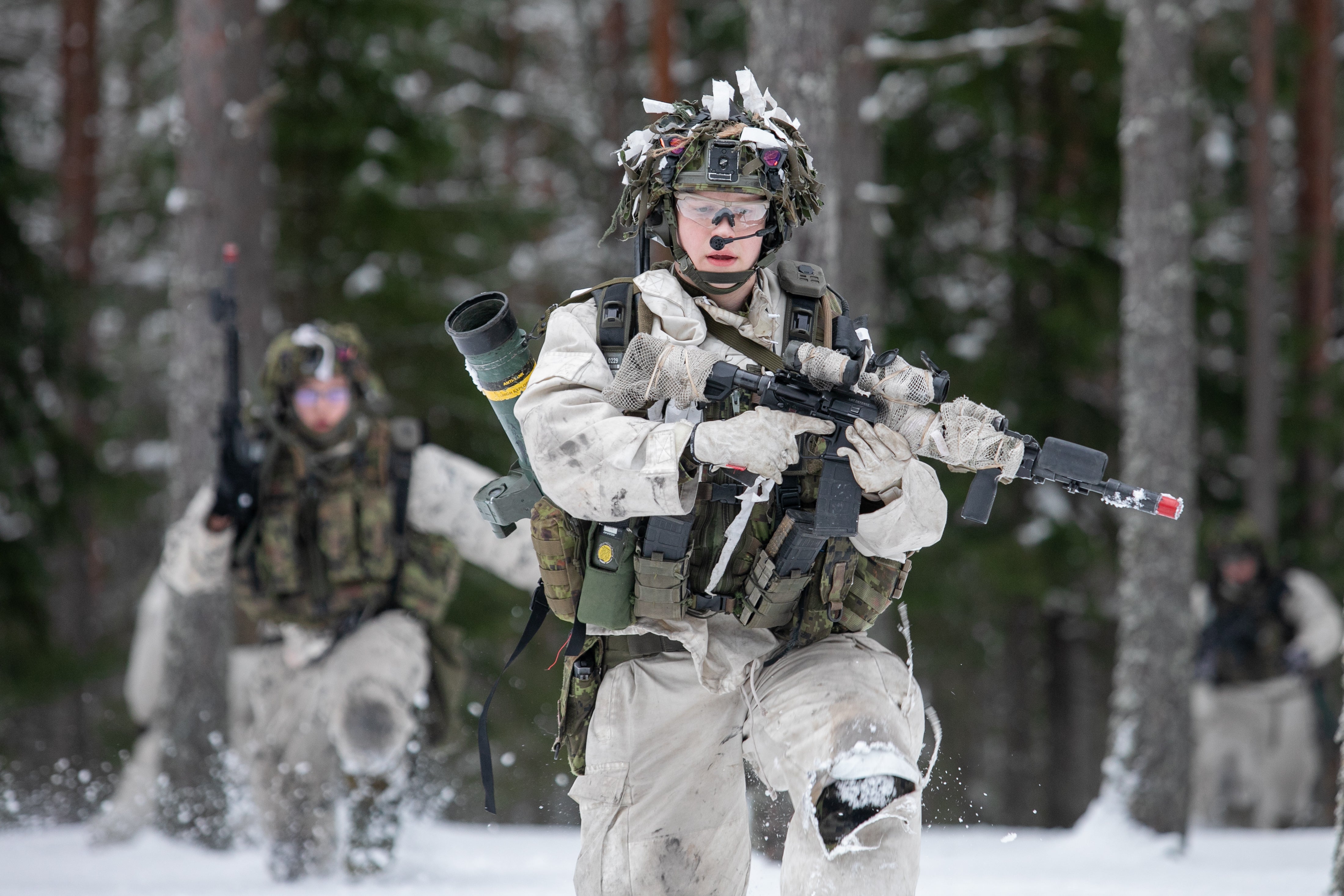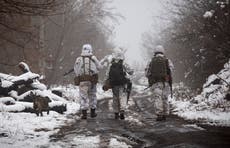Europeans want their countries to stand with Ukraine against Russia, poll suggests
The crisis is acting as a ‘geopolitical awakening in Europe’, say the authors

Your support helps us to tell the story
From reproductive rights to climate change to Big Tech, The Independent is on the ground when the story is developing. Whether it's investigating the financials of Elon Musk's pro-Trump PAC or producing our latest documentary, 'The A Word', which shines a light on the American women fighting for reproductive rights, we know how important it is to parse out the facts from the messaging.
At such a critical moment in US history, we need reporters on the ground. Your donation allows us to keep sending journalists to speak to both sides of the story.
The Independent is trusted by Americans across the entire political spectrum. And unlike many other quality news outlets, we choose not to lock Americans out of our reporting and analysis with paywalls. We believe quality journalism should be available to everyone, paid for by those who can afford it.
Your support makes all the difference.The majority of Europeans believe that Russia will invade Ukraine this year and that their countries should ride to its rescue, according to a poll carried out in seven countries and accounting for two-thirds of Europe’s population.
The poll revealed something of a “geopolitical awakening in Europe”, Mark Leonard, director of the European Council on Foreign Relations, the think tank which conducted the polling, said.
There was “no longer much truth in the cliche that Europeans believe war is unthinkable and take peace for granted. They perceive their world as being in a prewar rather than postwar state,” the ECFR said.
The pan-European poll conducted in late January 2022 shows that “Europeans in the north, south, east, and west agree that Russia is likely to invade Ukraine in 2022, that European countries have a duty to defend Ukraine, and that this is a European problem,” the authors said.
The study draws a clear distinction between the ongoing crisis, which saw the massing of around 100,000 Russian soldiers on the border with Ukraine, and the Russian annexation of Crimea in 2014.
Among the respondents, 73 per cent in Poland and 64 per cent in Romania think a Russian invasion of Ukraine is likely, according to the poll. About 52 per cent in Germany, 51 per cent in France and Italy and 44 per cent in Finland shared their view.
“It is probably true that more Europeans still view Ukraine as large and chaotic than as small and heroic. However, most of them agree that Ukraine should be defended,” the report said.
More than 60 per cent of the respondents thought that the role of Nato would be crucial in defending Kiev against any possible Russian invasion. Only slightly more people in Poland saw the EU role as the most prominent in standing up to Russia.
In Poland, 75 per cent felt they trusted Nato to defend European interests. In Romania (67), Italy (65) and Germany (53), people felt the same. In Sweden (67), Finland (60) and France (50) people favoured Brussels as the guardian of the interests of EU citizens.
Meanwhile, trust in the US to be equally committed to defending Europeans’ interests was notably lower than both Nato and the EU.
“While most Europeans still trust Nato to defend Europe, ‘Nato’ is no longer just another name for ‘the US’,” the authors said. “Europeans trust Nato to protect their interests more than they trust the US to do so.”
Notably, despite its “much-publicised show of solidarity with Kiev”, only very few European citizens see any role for the UK in this crisis – data which shows that “Brexit means Brexit”, they said.
Only respondents in Poland (66) and Sweden (52) think that the UK should defend Ukraine in the case of a Russian invasion.
“If Putin threatened Ukraine to force Europeans to think about the viability of the European security order, he has succeeded,” the study authors said.
“Europeans would see another Russian invasion of Ukraine as an attack not just on a neighbouring country but on the European security order itself. And it is striking that so many respondents – in the north, south, east, and west – think this order should be protected.”



Join our commenting forum
Join thought-provoking conversations, follow other Independent readers and see their replies
2Comments